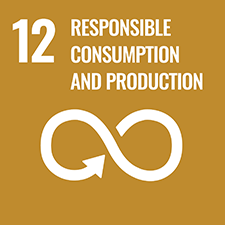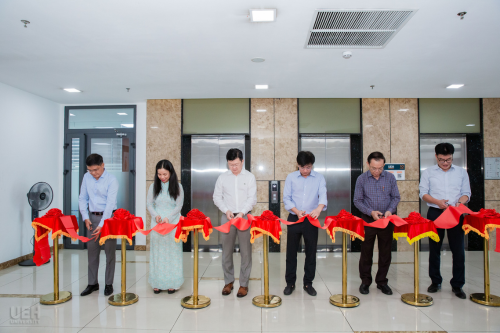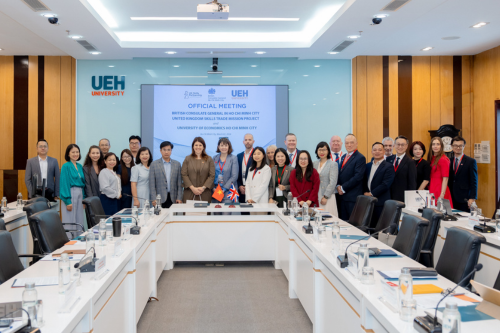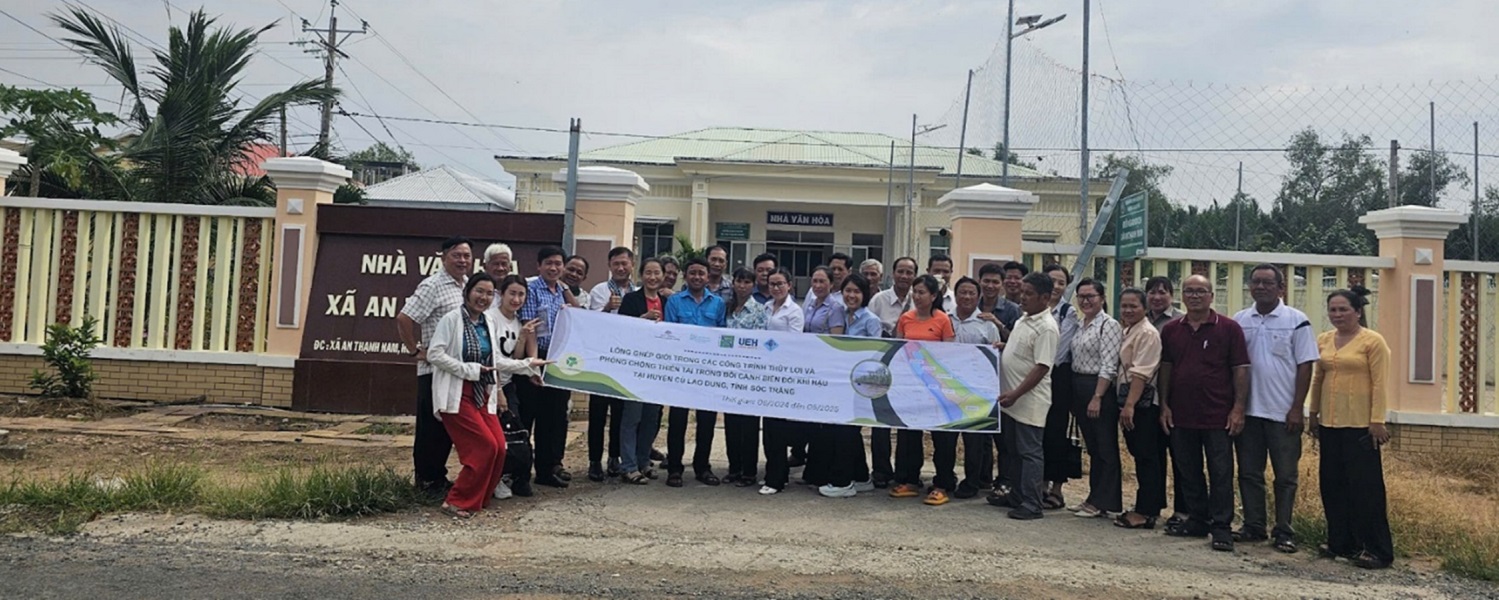
GS4 Infra Research Project: Community capacity building training session in Cu Lao Dung district on December 2, 2024
04 Dec, 2024
On December 2, 2024, the GS4Infra team collaborated with the Cu Lao Dung District Department of Agriculture and Rural Development to organize a training session entitled "Empowering Cu Lao Dung: GEDSI-Driven Infrastructure & Community Resilience." The training session delved into the fundamental principles of sustainable development, emphasizing the pivotal role of infrastructure in fostering community development. Additionally, the session explored the pressing environmental challenges faced by the region, including salinity intrusion, flooding, and drought, and their detrimental impact on livelihoods and community well-being. To ensure equitable access for vulnerable groups, the training highlighted the importance of community participation in infrastructure development decisions. Finally, the session examined strategies and solutions to enhance environmental resilience and optimize water resource management.
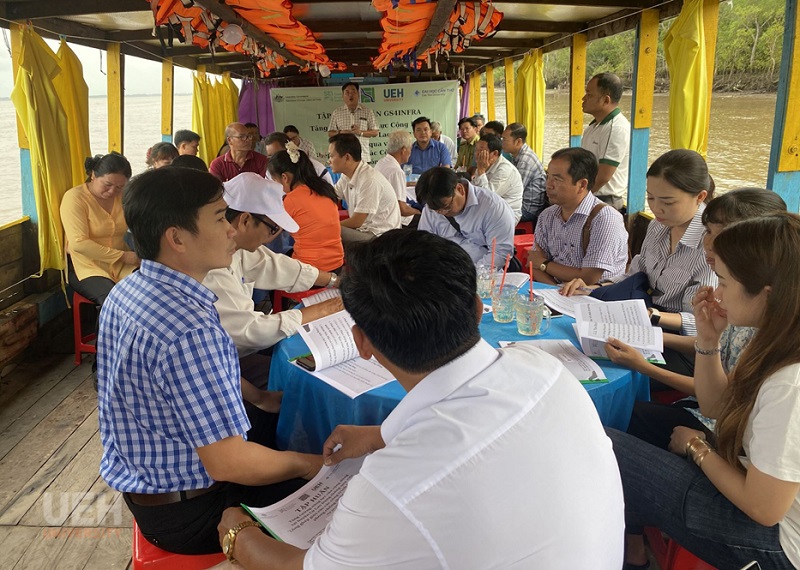
Photo. Training session on boat with the active participation of local representatives.
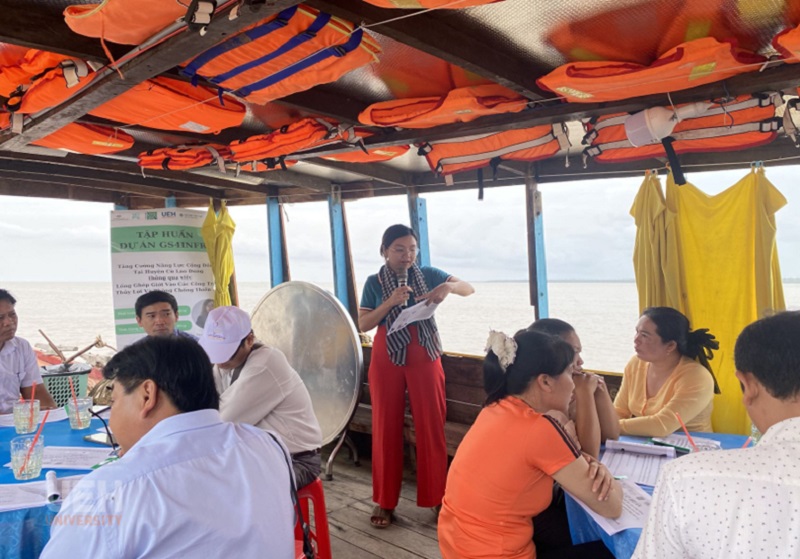
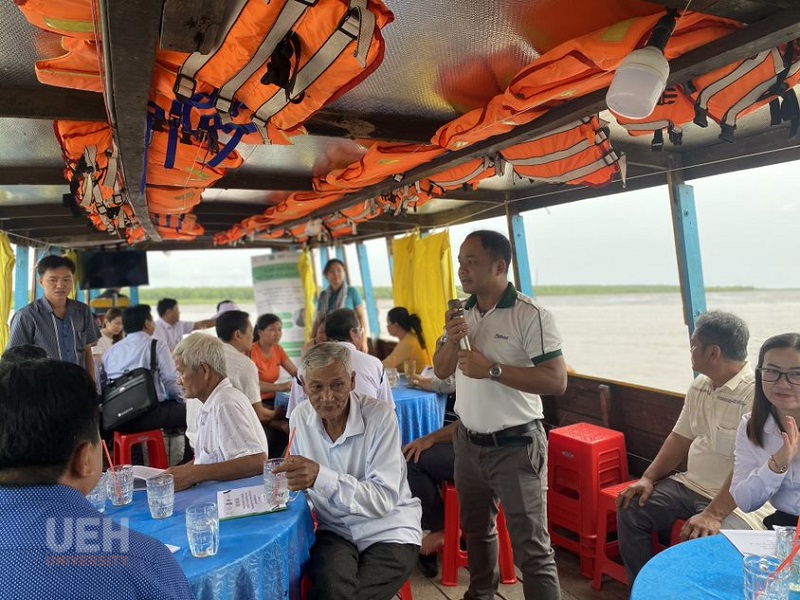
Photo: MBA. Nguyen Thi Thu Thuy and Dr. Ly Quoc Dang coordinated the training session
The training session was enriched by the use of active group discussion methods through a series of interactive exercises. In the first discussion, participants engaged in a diagram-drawing exercise to identify crucial irrigation works in Cu Lao Dung, such as irrigation control sluices (Sau Chet sluice, Dai Ngai bridge, Dai Ngai 2 bridge), ferry terminals (Vam Long Phu ferry terminal, Dai Ngai ferry terminal, Kenh Ba ferry terminal), sea dykes, and major roads. By pinpointing these essential works, participants were able to delve into their associated challenges and opportunities.
The second discussion involved role-playing, where participants assumed the roles of disadvantaged and vulnerable groups, including low-income households, ethnic minorities, the elderly, women, and children. Through this exercise, groups identified barriers to accessing irrigation and disaster prevention works, as well as shortcomings in the distribution of benefits. Drawing upon their practical experiences, the groups proposed innovative solutions to address these challenges.
The third discussion focused on developing planning and decision-making skills through a resource allocation exercise. Participants were tasked with allocating a fixed budget to various irrigation projects, such as road construction, culvert installation, canal dredging, and bridge building. A consensus emerged among most groups that a significant portion of the budget should be allocated to road construction.
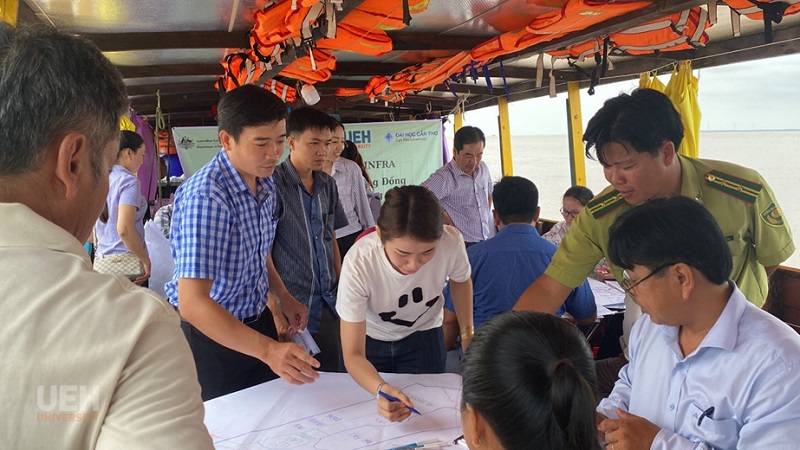
Photo: Groups of local officials and residents discuss together
The training session garnered active participation from representatives of local authorities, social organizations, and community members. Through the session, participants gained a deeper understanding of the significance of irrigation infrastructure to community life. Simultaneously, they acquired a clearer perspective on the challenges facing their communities and potential solutions. Interactive exercises fostered teamwork, analytical thinking, and problem-solving skills, empowering participants to contribute constructively to the development of local infrastructure plans.
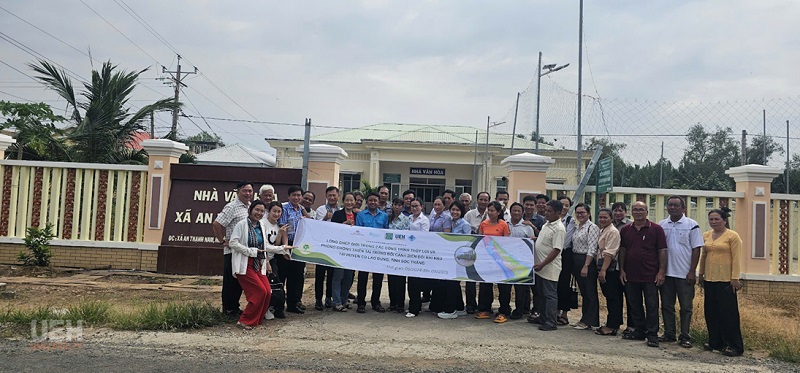
Photo: GS4Infra project team and participants take a souvenir photo

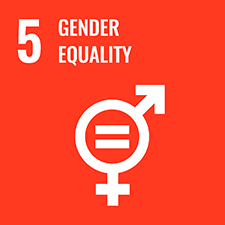





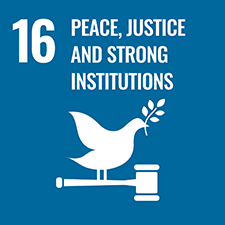
![[Research Contribution] Modernizing and Elevating Vietnamese Higher Education: Creating Breakthroughs in High-Caliber Human Resource Development and Talent Cultivation, Leading Research and Innovation](/images/upload/thumbnail/ueh-thumbnail-639083193174001549.png)
![[Research Contribution] Sustainable Manufacturing: A Driving Force for the Green Economy and the Challenges Ahead](/images/upload/thumbnail/ueh-thumbnail-639082294182922007.png)
